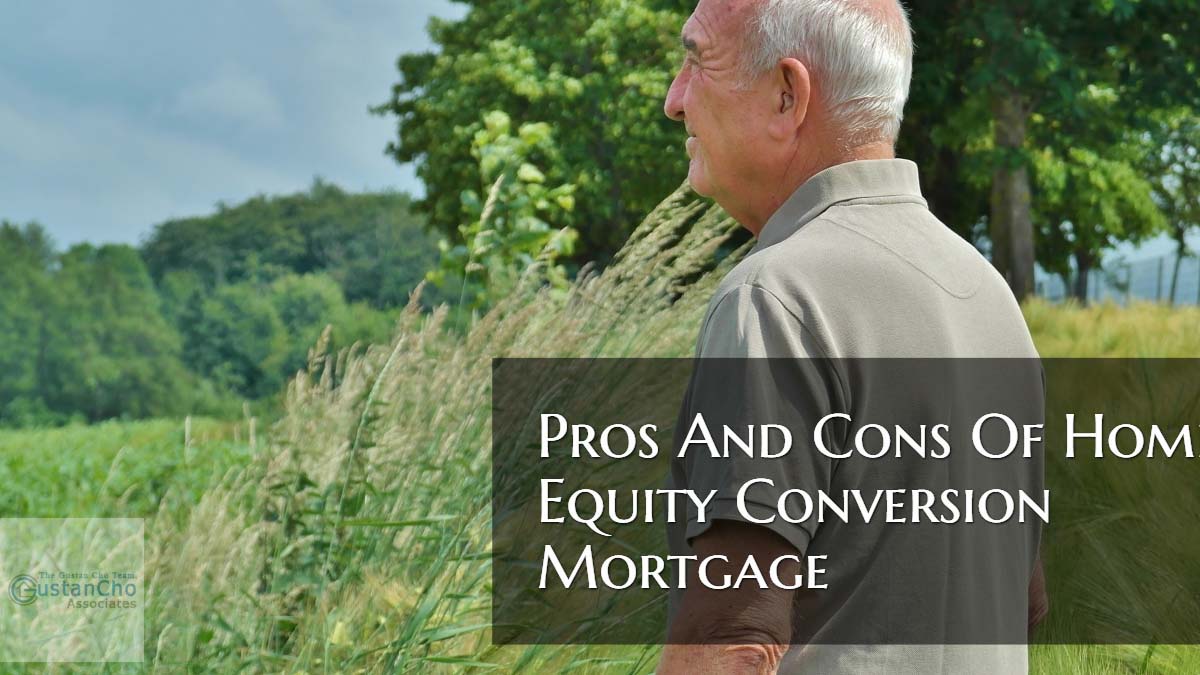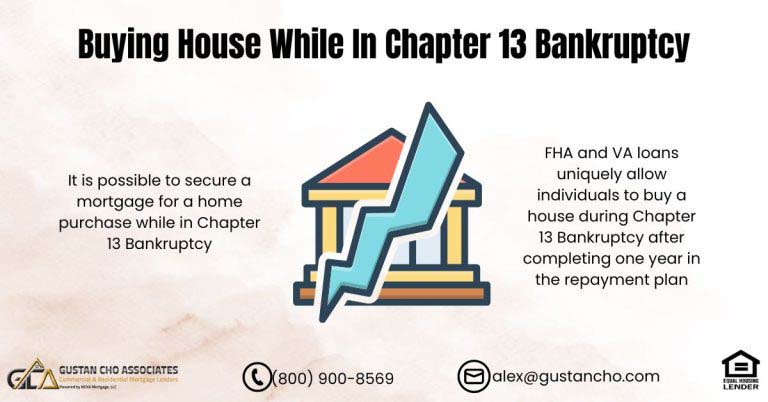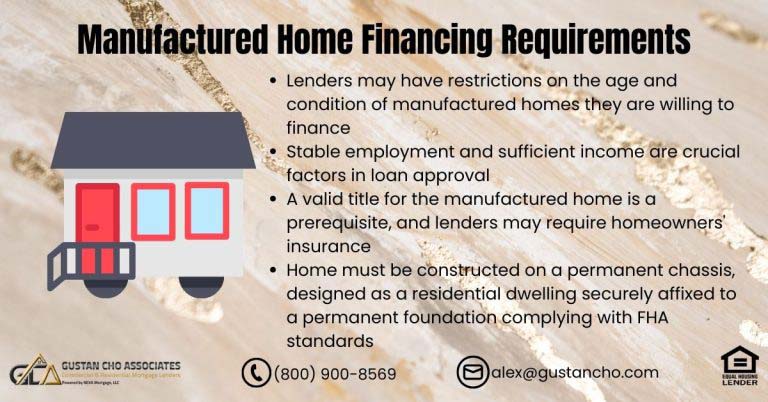This guide covers the pros and cons of home equity conversion mortgage. There are the pros and cons of home equity conversion mortgage. A government-insured Home Equity Conversion Mortgage (HECM) offered the Federal Housing Administration (FHA) is one type of mortgage loan program commonly referred to as a reverse mortgage. Dale Elenteny, a senior mortgage loan originator at Gustan Cho Associates says the following about the pros and cons of home equity conversion mortgage:
Explore HECM advantages and drawbacks in 2025. Tap tax-free home equity without monthly bills, but consider fees and inheritance impact. Get eligibility tips, key benefits, and smart alternatives for better retirement choices.
Reverse mortgage loans are available to qualified individuals who are 62-years-old or older and have no monthly payments for as long as the borrower lives in the home. In this article, we will discuss and cover the pros and cons of home equity conversion mortgage.
Difference Between Traditional FHA Mortgage versus HECM Reverse Mortgage
What are the pros and cons of home equity conversion mortgage? What is the difference between traditional FHA mortgage versus HECM reverse mortgages? Michael Gracz, a senior mortgage loan originator at Gustan Cho Associates says the following about the pros and cons of home equity conversion mortgage:
With a traditional FHA mortgage, an individual borrows a lump sum of money for the purchase or refinance of a home. Then makes monthly payments to repay the loan. With a reverse mortgage, an individual accesses the equity they have in their home.
Homeowners equity turns it into cash, monthly payments, a line of credit, or a combination of these without having to repay the loan while living in the home. Both types of mortgages require the borrower to pay property taxes and homeowner’s insurance maintain the home and comply with all terms of the loan.
Thinking About a Reverse Mortgage?
Understand the pros and cons of a Home Equity Conversion Mortgage before you decide.
Benefits and Pros and Cons of Home Equity Conversion Mortgage
Michael Gracz of Gustan Cho Associates explains the pros and cons of Home Equity Conversion Mortgage, also known as HECM. So what are the benefits of a HECM Reverse Mortgage?
A reverse mortgage can enhance a borrower’s quality of life. This is done by enabling them to continue to reside in a home that has emotional value in a familiar environment.
Instead of making monthly payments to a lender, borrowers receive money from their lenders… tax-free! (Individuals should consult their financial advisor and appropriate government agency for any effect on taxes and/or government benefits). In addition, heirs inherit any remaining equity after the reverse mortgage is paid in full. Finally, no individual is responsible for the repayment of the remaining balance if the home is worth less than the remaining balance of the reverse mortgage when the mortgage becomes due.
Cons of HECM
What are the pros and cons of Home Equity Conversion Mortgage? Michael Gracz now explains the cons. What are drawbacks of a HECM Reverse Mortgage is asked by not just borrowers of Mike Gracz, but it is a question that is asked my many real estate and mortgage professionals.
The fees and costs, including FHA initial and annual mortgage insurance premiums. May be higher than traditional mortgage fees and costs.
The amount of any equity in the home may decrease over time. This is since the loan balance increases over the life of the loan as interest accrues. The lender may make additional cash advance payment. This is depending on the disbursement options chosen. Social Security and Medicare eligibility are not affected by a reverse mortgage. However, needs-based government programs, such as Medicaid, can be affected.
The Mechanics of Reverse Mortgages
Loan Disbursement Options
Reverse mortgage borrowers have a choice of how they will receive their loan disbursements.
- A lump-sum payout (can be used to consolidate large expenses and other debts).
- Monthly payments (can be used to supplement retirement income).
- A HECM growing line of credit (can be used to access funds when needed).
How Do I Qualify For a Reverse Mortgage?
Requirements of a HECM Reverse Mortgage.
Following is a Summary of the Key Requirements for Reverse Mortgages:
- All borrowers on the title must be aged 62 years or over.
- The home is a principal residence and has sufficient equity.
- All borrowers must meet FHA’s financial eligibility criteria.
- The home must meet FHA’s minimum property standards.
All borrowers must complete a counseling session with a HUD-approved reverse mortgage counselor.
The Reverse Mortgage Process
The HECM Reverse Mortgage Application Process.
Mike Gracz of Gustan Cho Associates addresses that the Reverse Mortgage application process is similar to the traditional mortgage loan process and will typically take up to 60 days to complete.
The six major steps are:
- Research and choose a lender
- Submit a mortgage application
- Complete reverse mortgage counseling
- Establish property’s value with an appraisal
- Underwriting review of all documentation
- Sign final closing documents
Is a HECM Right for You?
Weigh the benefits and risks so you can make the smartest financial move.
Understanding the Pros and Cons of a Home Equity Conversion Mortgage
Many seniors today want to use their home equity to help fund retirement. For people over 62, a Home Equity Conversion Mortgage (HECM) is one way to do that. This popular reverse mortgage lets you turn some of your home’s value into cash while keeping the house, without having to write monthly checks.
With the new FHA lending limit now $1,209,750, HECMs are a solid option as living costs and inflation keep rising. Still, any financial choice deserves a careful look.
This guide will explain how a HECM operates, what it does well, where it can fall short, who can qualify, the key advantages, what to watch out for, and what other options exist. When you finish, you will know how to decide if a HECM fits your retirement plans.
What is a Home Equity Conversion Mortgage (HECM)?
A Home Equity Conversion Mortgage, or HECM, is a reverse mortgage program backed by the government and run by the Federal Housing Administration (FHA) under HUD. It lets homeowners aged 62 and older use the equity they’ve built up in their homes without selling or leaving. Instead of the usual mortgage, where you send payments to the bank, a HECM pays you money.
You can take it as a big one-time amount, regular monthly payments, a line of credit you can draw on, or any mix you choose. You don’t need to pay anything back until the home is sold, you move out for good, or you pass away.
HECMs make up most of the reverse mortgages in the country and come with protections for borrowers and their families. Since the loan is government-insured, the FHA pays the difference if the debt grows more than the home’s value. This means your heirs will never owe more than the house is worth. Starting in 2025, HUD’s Mortgagee Letter 2024-22 will update loan limits and clarify rules to make HECMs easier to access while keeping you and your money safe.
How a Home Equity Conversion Mortgage Works
A Home Equity Conversion Mortgage, or HECM, turns the usual mortgage upside down. Instead of paying the bank monthly, the bank gives you money based on how much your home is worth, your age (or the age of the youngest borrower), current interest rates, and the Federal Housing Administration’s lending cap of $1,209,750 for 2025. The older you are and the higher your home’s value, the bigger the loan amount you may get.
Here’s How it Works
- No Monthly Payments: You don’t send monthly payments.
- Instead, interest builds on the loan amount, so the loan balance grows over the years.
- When You Repay: The loan is repaid when the last borrower dies, sells the house, or does not keep up with property taxes, insurance, or upkeep.
- Ways to Get Money: You can take a one-time cash payout, get monthly cash for as long as you live in the home, open a line of credit that can expand, set up a fixed monthly payout for a set time, or mix these options.
- Possible Costs: You will pay a few fees initially. These include a loan origination fee (maximum of $6,000), mortgage insurance premiums (2% upfront and 0.5% every year after), the cost of the appraisal, and closing costs.
- Most of these fees can be rolled into the loan amount.
- Borrowers must undergo counseling approved by HUD to fully understand the loan’s long-term effects, which adds an important safeguard for consumers.
What You Need to Qualify for HECM in 2025
To Get a Home Equity Conversion Mortgage, You Must Meet the FHA’s Rules:
- Age: You must be 62, or the youngest co-borrower or spouse must be at least that age.
- Home Ownership: You must own your home free and clear or have a low mortgage balance that the HECM will pay off.
- The property must be your primary residence and meet FHA guidelines, which include single-family homes, FHA-accepted condos, or approved manufactured homes.
- Financial Assessment: You must show you can pay property taxes, homeowners’ insurance, and routine maintenance.
- The lender will review your credit and income to ensure you won’t be at risk of foreclosure.
- Equity Level: You need to have enough equity in your home.
- How much you can borrow will depend on your home’s appraised value and current interest rates.
- Counseling: You must finish a counseling session with a HUD-approved agency.
Under the new 2025 rules, a non-borrowing spouse under 62 can continue living in the house when the eligible borrower dies. To qualify, the spouse must already be on the loan and maintain residency in the home. The couple can’t be behind on any federal debts, and the property can’t be in a flood zone unless the right insurance is in place.
Why a Home Equity Conversion Mortgage Can Work for You
Suppose you’re looking for a way to tap into home equity in retirement. In that case, the Home Equity Conversion Mortgage (HECM) offers some strong benefits that make it attractive:
- Tax-Free Cash When You Need It: The money you pull out is not taxed, so you can use it to boost monthly retirement checks, pay out-of-pocket medical bills, or make home upgrades without counting against Social Security or Medicare.
- No Monthly Payments: Because you’re not making monthly mortgage payments, you can keep more cash in your budget each month.
- This matters for folks who are living on a set income.
- Choose How You Get Paid: You can get the money in a lump sum, keep a credit line that grows when you don’t use it (currently at the interest rate plus half a point), or get monthly checks.
- This flexibility helps you align the money with your overall retirement plans.
- Keep Your Home: As long as you pay property taxes and homeowner’s insurance and keep the home in good shape, you can stay there for as long as you want. It’s still your home, and you control it.
The Truth About Home Equity Conversion Mortgages
Get a clear breakdown of how HECMs work — and who they’re best for.
Why a Home Equity Conversion Mortgage Might Be Smart
- Government-Backed Security: The FHA guarantees your HECM loan, which means that if you pass away, your heirs will never owe more than the house’s market value.
- Plus, as long as you follow the rules, you can never outlive the loan.
- Line of Credit Growth: Any credit you don’t use on day one will still grow over time, giving you more money that can help cover future expenses and fight inflation.
- Buy with a HECM: The HECM for Purchase option lets you buy a new house using a HECM loan, so you only need a one-time down payment.
- This can make downsizing easier and save you from the hassle of traditional mortgages.
All these perks can improve your daily life, and the new, higher loan limits in 2025 will let you tap into even more of your home’s value.
Drawbacks to Consider
Even with its positive aspects, a Home Equity Conversion Mortgage has downsides that you must weigh carefully to continue passing wealth on to your family.
- Compounding Costs: The interest keeps building and, along with upfront fees like the 2% mortgage insurance premium, can eat away at your home equity and the money left for heirs
- Smaller Legacy: Since your home’s value will likely dip over time, the total worth of what you leave behind could be lower.
- Ongoing Duties: You still must take care of property taxes, insurance, and home upkeep.
- If you miss a payment, the lender could start foreclosure proceedings.
- Costs Compared to Options: An HECM’s fees can be higher than those for a HELOC or a standard home equity loan, and interest rates—whether adjustable or fixed—can increase over time.
- Growing Loan Balance: The loan balance swells monthly, and if the market drops, it could surpass the home’s worth.
- The FHA insurance helps shield borrowers from owing more than the home is worth.
- Borrowing Limit: The amount you can access is limited by age, home value, and current equity.
- Younger borrowers or homes with less equity typically qualify for smaller loans.
- Risk of Fraud: Some lenders and contractors prey on seniors, underscoring the need for counseling from a HUD-approved agency before signing.
Given the economic backdrop forecast for 2025, these drawbacks highlight the need to compare HECMs carefully with other financing routes.
Other Options Besides HECM
If a Home Equity Conversion Mortgage seems less beneficial for you, look at these choices instead:
- Home Equity Line of Credit (HELOC): Draw cash as needed, generally with lower fees. You’ll need good credit, and regular payments can change over time.
- Home Equity Loan: Borrow a fixed sum and pay it back monthly.
- This can work for a one-time, planned expense, but creates an extra monthly bill.
- Cash-Out Refinance: Take out a new mortgage for more than your current loan and take home the difference.
- You’ll face new monthly payments and closing fees.
- Sell and Downsize: Sell your house, buy a smaller one, and use the leftover cash to pay off debts.
- This option avoids new loans and grows your savings.
- Private Reverse Mortgages (Proprietary): These loans are for high-value homes.
- They might let you borrow more money because they don’t follow the FHA dollar limits.
- Govt. Aid Programs: Programs from your local office or HUD offer low-interest loans or outright grants to fix up your home.
- Talk to a money expert to find the best choice for your circumstances.
Frequently Asked Questions (FAQs)
What’s The Difference Between a HECM and a Regular Reverse Mortgage?
A HECM is a reverse mortgage insured by the FHA, giving you a safety net with no debt repayment and no asset risk. Regular reverse mortgages are from private lenders. They might give you more cash for pricey homes, but lack government safety.
How Much Can I Borrow With a HECM in 2025?
It varies with your age, home value, current interest rates, and the FHA limit of $1,209,750. Generally, you can access 40% to 60% of your home equity. An online calculator will help you get a ballpark figure.
Do I Have To Pay Taxes on HECM Money I Receive?
Nope. HECM money is treated as loan cash, not taxable income. Still, check with a tax expert about your unique case.
What Happens To My Home When I Die?
Your heirs can either pay off the remaining loan by refinancing or selling the home, allowing them to keep it, or they can hand the deed to the lender. The FHA’s insurance will cover the difference if the loan balance exceeds the home’s value.
Will My Bad Credit Keep Me From Getting a HECM Loan?
Not necessarily. A financial review will check your credit and income to ensure you can keep paying property taxes and homeowners’ insurance. If your credit is low, you should set up a fund to cover those costs upfront.
Do I Have To Go to Counseling for a HECM?
Yes, you must have a counseling session approved by HUD. This meeting explains the benefits, risks, and other choices you have. Counseling fees range from $125 to $200.
Can I Use a HECM To Purchase a New Home?
Yes! The HECM for Purchase program lets you buy a new primary home. You make a down payment from your savings or by selling your current house, and you don’t have to make monthly loan payments.
What Will HECM Interest Rates Be in 2025?
Rates can be adjusted, tied to the SOFR index, or fixed. They should be between 5% and 7% on average, but they can fluctuate. Keep in mind that fixed rates are available only for full cash-out loans.
Is it Possible to Refinance a HECM?
Yes, you can refinance your HECM after 18 months if it will save you money, like getting a lower interest rate or accessing more cash. Remember, you’ll pay new fees and must go through the approval process again.
Are There Scams Connected to HECM?
You should watch out for pressure sales tactics, phony endorsements, or contractors pushing you to get a loan to pay for repairs. Stick with FHA-approved lenders and always meet with a certified counselor.
Will HECM Change My Social Security or Medicare Benefits?
No, HECM proceeds aren’t counted as income. However, a big lump-sum payout could affect Medicaid eligibility, so talking to a benefits advisor is smart.
What Happens if I Outlive My HECM Funds?
You can’t outlive the loan. You can stay in the home as long as you meet the mortgage terms. With a line of credit, the amount you haven’t used keeps growing. In summary, you must carefully consider the advantages and the drawbacks of a Home Equity Conversion Mortgage to protect your retirement. Don’t skip talking to financial pros to decide if it suits your needs. Michael Gracz is an associate contributing editor and writer for Gustan Cho Associates says the following about the pros and cons of home equity conversion mortgage.
Retirement is a significant life event and not all seniors have adequately prepared. Our goal at Gustan Cho Associates is to educate seniors about the pros and cons of Home Equity Conversion Mortgage.
We educate our audience via mortgage and real estate informational resource national media outlets like Gustan Cho Associates . Other ways the team at Gustan Cho Associates reach our audience and fans are through the following:
-
- Local seminars
- National radio and cable networks
- GCA Forums Online Communities
Pros and Cons of Home Equity Conversion Mortgage for Seniors
Besides being one of the most knowledgeable Reverse Mortgage Loan Officers in national lending network. The team at Gustan Cho Associates are experts in originating and funding FHA, VA, USDA, Conventional, FHA 203k, Jumbo, and portfolio loans. Please contact Gustan Cho Associates at 800-900-8569 or text for faster response. Borrowers can email us at gcho@gustancho.com. The Team at Gustan Cho Associates s available 7 days a week, evenings, weekends, and holidays. Gustan Cho Associates is licensed in multiple states. Gustan Cho Associates has a national reputation for closing loans in 21 days and not having overlays.
Unlock Your Home’s Equity — The Smart Way
See if a HECM can help you access cash without selling your home.










I just need to know if a HECM is a safe and practical way to buy a new home.
You are adding more and more to your loan balance as time passes